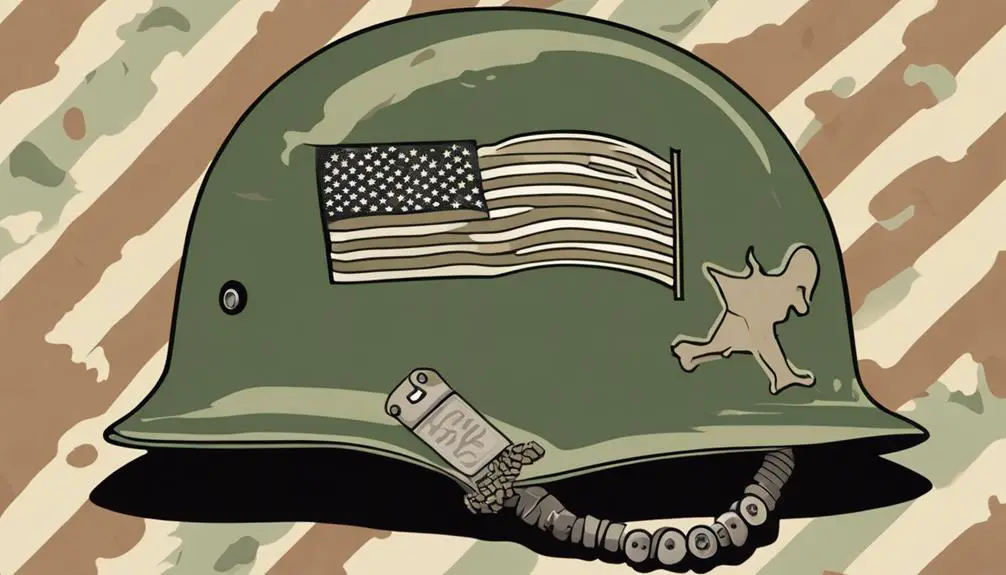You've likely stumbled upon military slang like 'drop and give me 20' or 'hurry up and wait,' but did you know that military slang has a rich history dating back to ancient Greece and Rome, with roots in multiple languages? From basic training lingo to combat zone jargon, understanding military slang is essential for effective communication. You'll need to know what 'danger close' means in a high-stress combat situation. As you explore the world of military slang, you'll uncover a complex web of terminology that'll reveal the intricacies of military communication – and there's more to uncover.
Origins of Military Slang
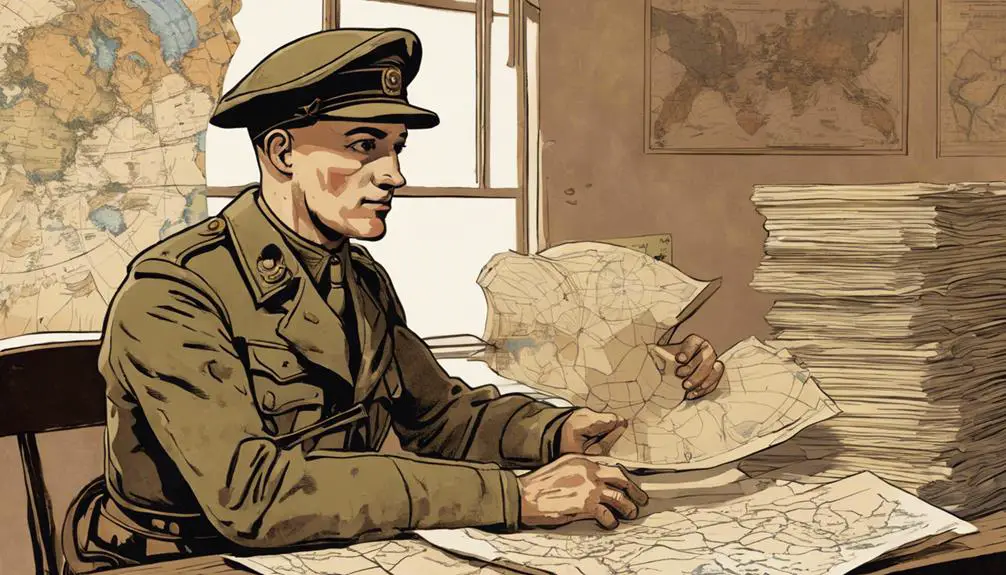
When you explore the world of military slang, it's important to understand that its origins date back to the earliest days of warfare, when soldiers and sailors, seeking to create a sense of camaraderie and exclusivity, began coining unique terms to describe their experiences and environments. This phenomenon, known as 'Warrior Words,' has a rich historic etymology that spans centuries.
As you investigate further, you'll discover that military slang has its roots in ancient Greece and Rome, where soldiers used colloquialisms to communicate quickly and efficiently on the battlefield. In the Middle Ages, knights and men-at-arms adopted French and Latin phrases to describe their armor, tactics, and battles. The terminology evolved further during the American Civil War, when soldiers from different regions brought their local dialects to the front lines.
As the military expanded globally, so did its slang, incorporating words from various languages and cultures. Today, military slang continues to thrive, serving as a powerful tool for bonding and identification within the armed forces. By understanding the origins of military slang, you'll gain insight into the complex social dynamics and cultural heritage of the warrior community.
Basic Training Lingo
As you enter the intense world of basic training, you're immediately immersed in a unique linguistic environment where drill sergeants and instructors employ a specialized vocabulary to convey orders, instructions, and encouragement.
You'll quickly learn that 'drop and give me 20' means performing 20 push-ups as a form of punishment or motivation. Your Drill Instructors (DIs) will use phrases like 'get squared away' to tell you to correct your uniform or 'fall in' to assemble in formation.
In Boot Camp, you'll be told to 'hurry up and wait' when you're forced to wait for an extended period after being rushed to complete a task. You might hear 'smoke and mirrors' to describe an overly complicated task or 'pogie bait' to refer to tasty snacks.
As you navigate this unfamiliar terrain, you'll pick up on the lingo quickly, and it'll become second nature to you and your fellow recruits. Remember, in this high-stress environment, understanding the language is essential to success.
Combat Zone Jargon
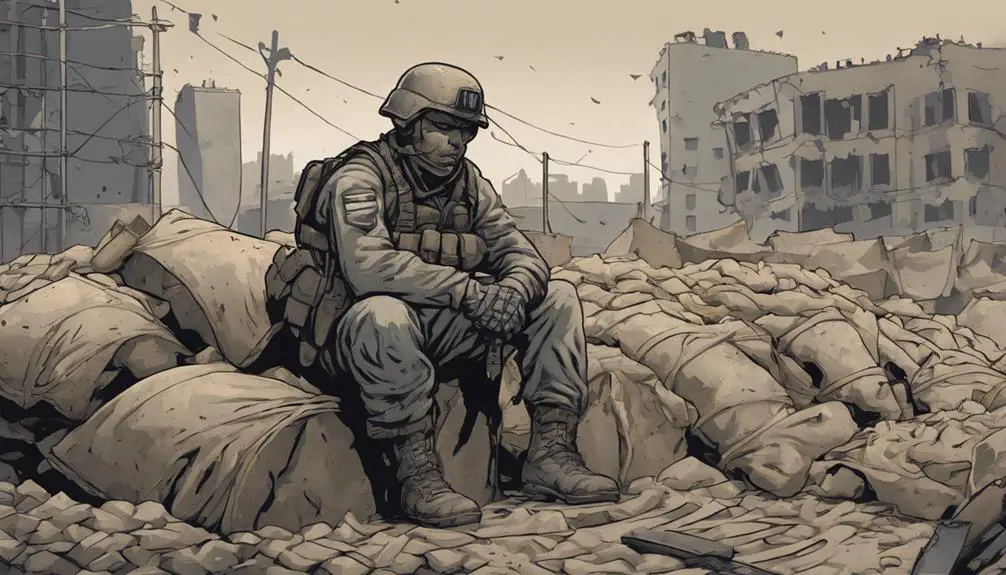
In the heat of battle, you'll rely on a distinct lexicon to swiftly convey critical information, where phrases like 'danger close' or 'priority fire' become lifesavers. This tactical terminology, often unfamiliar to outsiders, is important for effective communication in high-stress combat situations.
Jargon decoded, terms like 'danger close' signal friendly forces are in close proximity to the target, while 'priority fire' indicates an urgent need for suppressive fire to neutralize an immediate threat.
You'll need to understand 'call for fire' procedures, where you'll request artillery or air support to neutralize enemy positions. 'Fire mission' will become a familiar phrase, as you coordinate with supporting units to deliver precise firepower.
In the chaos of combat, clarity is key, and using the right terminology can mean the difference between success and disaster. Familiarize yourself with these phrases, and you'll be better equipped to navigate the complexities of combat zone jargon.
Ranks and Roles Slang
You'll frequently encounter colloquialisms and abbreviations that identify military ranks and roles, such as 'grunt' for infantrymen or 'LEO' for Law Enforcement Officer. These nicknames can be confusing, but understanding them is important for effective communication.
For instance, 'OIC' stands for Officer In Charge, while 'NCO' refers to a Non-Commissioned Officer. When you see 'Rank Insignia' on a uniform, it indicates the officer's position and authority.
You might hear 'Butterbar' for a Second Lieutenant, 'Mustang' for an Officer who rose from the enlisted ranks, or 'Top' for a First Sergeant. These Officer Nicknames can reveal an individual's experience, role, and level of respect within the military hierarchy.
Familiarizing yourself with these terms will help you navigate the complex world of military ranks and roles. By recognizing these colloquialisms, you'll better understand the nuances of military culture and communicate more effectively with service members.
Military Acronyms Decoded
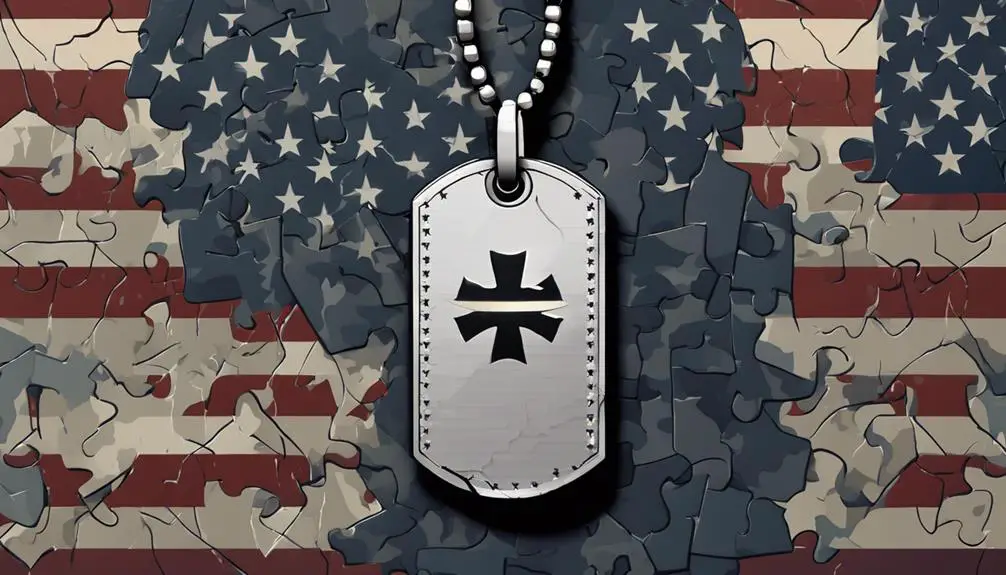
Beyond rank-related slang, the military relies heavily on acronyms to convey complex information quickly, and understanding these abbreviations is vital for effective communication. You'll often hear military personnel tossing around terms like 'SITREP' (Situation Report) or 'COA' (Course of Action) without batting an eye.
But where do these acronyms come from, and how can you decipher their meanings? Acronym origins can be traced back to the early days of military communication, where brevity and speed were paramount. Code breakers, like those in the cryptanalysis unit, played a significant role in developing these abbreviations to convey sensitive information quickly and securely.
Today, these acronyms are an integral part of military jargon, allowing personnel to convey complex information in a concise manner. As you navigate the world of military slang, understanding these acronyms is crucial to stay ahead of the curve. By recognizing and interpreting these abbreviations, you'll be better equipped to communicate effectively with military personnel and stay informed about critical operations.
Slang in Different Branches
Each military branch, from the Army to the Coast Guard, has its unique slang that reflects its distinct culture, mission, and history. You'll find that each branch's slang is shaped by its Branch Traditions and Service Stereotypes.
For instance, the Army's slang is often rugged and no-nonsense, reflecting its role as the backbone of the military. In contrast, the Navy's slang is often more laid-back and nautical, reflecting its maritime heritage.
Here are some examples of branch-specific slang:
- Army: 'Hooah' (expression of excitement or approval), 'Fobbit' (someone who stays at the forward operating base)
- Navy: 'Squid' (new recruit), 'Snipe' (engine room technician)
- Air Force: 'Zoomie' (Air Force Academy graduate), 'Flyboy' (fighter pilot)
- Marines: 'Oorah' (expression of enthusiasm), 'Grunt' (infantryman)
- Coast Guard: 'Coastie' (Coast Guard member), 'Buoy Tender' (vessel that maintains navigational aids)
As you explore the unique slang of each branch, you'll gain a deeper understanding of their distinct identities and cultures.
Evolution of Military Slang
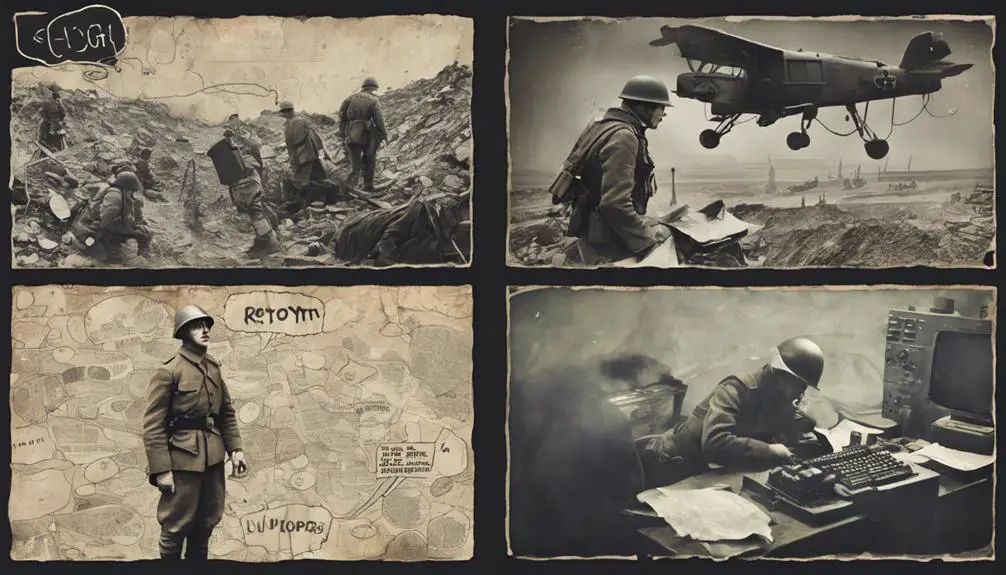
As military operations and technologies evolve, so does the slang that reflects the changing nature of warfare and the people who fight it.
You've likely noticed that military slang adapts quickly to new cultural influences, incorporating phrases and words that resonate with contemporary society. This cultural impact is evident in the way military personnel borrow from popular culture, using terms like 'game-changer' or 'low-hanging fruit' to describe tactical maneuvers.
Additionally, the rapid advancement of technologies has greatly influenced military slang. For instance, the rise of drones has led to the coining of terms like 'drone strike' and 'ISR' (Intelligence, Surveillance, and Reconnaissance). Technological influence is also seen in the adoption of acronyms like 'SOF' (Special Operations Forces) and 'C2' (Command and Control).
As you explore the evolution of military slang, you'll discover how these cultural and technological influences have shaped the unique language of the military.
Frequently Asked Questions
Can Military Slang Be Used in Formal Written Reports?
When writing formal reports, you should maintain a professional tone that exudes authority. You can't afford to compromise on professionalism versus informality.
In formal written reports, it's important to avoid using slang or colloquial language, as it can undermine your credibility. Instead, opt for precise, formal language that conveys your message clearly. By doing so, you'll guarantee your report is taken seriously and commands respect.
Are There Regional Differences in Military Slang Usage?
You'll find that regional differences in language usage exist across the globe, and military slang is no exception. Geographic variations in dialects and cultural influences greatly impact the slang used in different regions.
For instance, military personnel from the Southern United States may use distinct phrases compared to those from the Northeast. Cultural influences, such as exposure to different ethnic groups, also shape regional slang.
Do Military Slang Terms Change Rapidly Over Time?
You're witnessing linguistic evolution firsthand, as language adapts to cultural shifts. Terms emerge, evolve, and fade rapidly, reflecting the dynamic nature of human communication.
This phenomenon isn't unique to military slang; it's a universal aspect of language. As cultural contexts change, so do the words and phrases we use. You see it in everyday conversations, where expressions rise and fall in popularity.
Military slang, being a subset of language, follows this same pattern of rapid change, driven by the cultural adaptation of its users.
Can Civilians Use Military Slang in Casual Conversation?
When using military slang in casual conversation, it's crucial to tread carefully to avoid cultural appropriation. While it's not a hard no, it's important to keep in mind social norms.
Using military slang can come across as a respectful homage or awkward mimicry, depending on your connection to the military community. Be mindful of your audience and intentions to avoid crossing the line into cultural insensitivity.
Are There Military Slang Terms Specific to Certain Conflicts?
You're wondering if military slang terms are specific to certain conflicts. Yes, they are.
For instance, the Vietnam War had its own unique vernacular, dubbed Vietnam Vernacular, which included terms like 'grunt' for infantrymen and 'hooch' for a soldier's living quarters.
Similarly, the Gulf War introduced its own Gulf Glossary, featuring terms like 'scud' for Iraqi missiles and 'sandstorm' for a massive dust storm.
These conflict-specific slang terms reflect the unique experiences and challenges of each war.
Conclusion
As you march through the ranks, military slang becomes your battle cry, a secret language that sets you apart from civilians. It's a cadence that echoes through the ages, a rhythmic beat that synchronizes your steps with those who've come before.
Like a drumline, each generation adds its own flair, adapting and evolving the lingo to fit the times. And as you advance, you become the maestro, conducting a symphony of slang that harmonizes the military experience.

